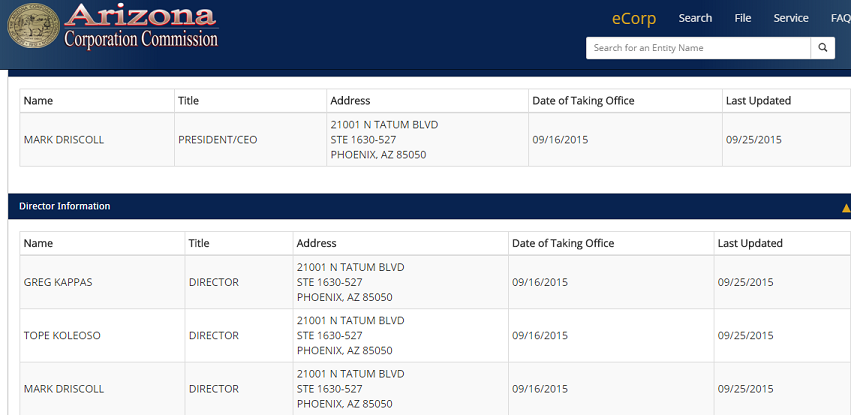On October 15, I linked to a report published by SAMHSA which called for an end to sexual orientation change efforts for LGBT minors. At the time, I wrote:
Ending Conversion Therapy: Supporting and Affirming LGBTQ Youth was released today by the Substance Abuse and Mental Health Services Administration. The report recommends the end of change therapies for minors via professional advocacy and legal strategies.
Mark Yarhouse, co-author with me of the Sexual Identity Therapy framework and professor at Regent University, was an evangelical presence on the panel of experts who produced the consensus statements.
I also said I hoped to have commentary from Mark. Today, I have an interview with him on his committee experience and his views of the consensus. Mark is professor of psychology at Regent University and Director of the Institute for the Study of Sexual Identity. He is co-author with me of the Sexual Identity Therapy Framework, which is a model for ethically and effectively helping clients with distress surrounding their sexual orientation and religious beliefs. For more on SITF, see the website which supports the framework. This will be cross–posted there.
This interview comes amid a bit of a controversy involving Mark and a speaking engagement in Canada. I hope those who assume they know Mark’s views will also read this and the SITF.
Warren Throckmorton: In general, what was your experience like being on the consensus committee? Did you feel the rest of the committee members took religious concerns seriously?
Mark Yarhouse: Overall, it was a good experience. I am always grateful for the opportunity to engage with others around complex issues, to learn from other experts, and to share from my own lines of research. We reviewed existing research and past policy statements, as well as shared from our professional experience working with children, adolescents, and families. In answer to your question about religious concerns, I think committee members wanted to take religious concerns seriously, although the primary focus was the well-being of minors who are navigating sexual identity and gender identity. As you know all too well, the beliefs and values of religious families are important considerations when working with families whose teen may be navigating gender identity or sexual identity concerns. In any case, my experience was that other committee members were interested in the experiences I’ve had – and others had – working with conventionally religious families.
WT: Even though the sexual identity therapy framework (SITF) wasn’t mentioned or cited, do you feel the report is supportive of the approach we take in the framework?
MY: Yes, I think so. We had the opportunity to review many documents, including the SITF and the 2009 APA task force report on appropriate therapeutic responses to sexual orientation, which, as you know, cited the SITF favorably. The kind of practice we saw as helpful would emphasize identity exploration without an a priori fixed outcome. I think the framework does that in the area of sexual identity. However, the framework does not address in much detail working with minors, and that may be something we consider if we offer a revision in the future.
WT: Do you have any comments, reservations about the consensus reported in the paper?
MY: As the SAMHSA report notes, we decided at the outset that we would define consensus as a reasonably high percentage of agreement rather than unanimous consensus. We all agreed to that, but that meant that what counted as consensus in at least a few occasions was not reflecting unanimity. We worked hard for unanimity in all cases, but that did not always happen. I at times found myself in disagreement with some of the wording, for example, but the threshold for consensus was met in those instances, and I understood and respected that process.
WT:It seems to me that the consensus surrounding sexual orientation is more settled than gender identity. How do you see that?
MY: There are fewer professional debates about sexual orientation, which likely reflects the consensus you are referring to. There seem to be more professional discussions about a range of clinical options with gender dysphoria. However, I was impressed by how little research is published on minors – particularly efforts to achieve congruence between gender identity and biological sex. I was under the impression that more studies of higher quality had been published in some areas, and as the committee looked at them together, we found them lacking. Also, while research was one consideration, we drew on other sources, too, such as committee members’ professional experience and prior reports. In any case, I would have preferred to frame and word various aspects of the consensus report differently, but again that in some cases goes back to what counted as consensus. Without going into too much detail, you could imagine someone favoring the language of ‘insufficient evidence’ in discussions of effectiveness and harm, to reflect how little published research is available in a given area of inquiry. Other topics, such as how to conceptualize sexual and gender identities and expressions in a diverse and pluralistic culture raise important philosophical and theological questions that were beyond the scope of the discussion.
WT: In general, do you support the recommendations of the paper (or asked another way). Is there anything in the recommendations you have concerns about?
MY: It is important to distinguish the consensus statement from the SAMHSA report. I did provide feedback on portions of the SAMHSA report, especially around family, community, and religious considerations, but it was written by designated persons from that agency. I think it reflects a little more regard for conventionally religious persons and families and provides for more resources than otherwise may have been available. But many committee members provided input and suggestions, and I imagine the author of the report had to balance various considerations in putting together the final document.
As far as concerns, I indicated at the outset that I did not think the government should be involved in legislating around the complexities of clinical practice in these two areas. I prefer to see government support the regulatory bodies that provide oversight to mental health professions in a given jurisdiction. I shared more of my thoughts on that in an interview with First Things. My opinion has not changed on that matter.


